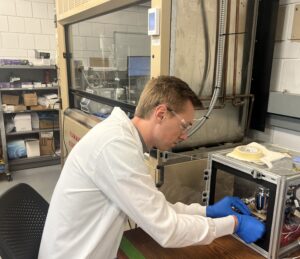My academic research project, “Modulation of Thermal Gradients in Lithium-Ion Batteries,” looks into how thermal gradients (TG) affect the performance and lifespan of lithium-ion batteries (Li-ion). The main goal is to get a deeper understanding of how thermal gradients form when the battery works and what effects these have on how the battery behaves. We did many tests with pouch cells using advanced methods to see how different temperatures affect battery life. We examined how charging and discharging speeds (C-rates) change the results.
The project aims to determine how different temperature changes affect battery performance, measure the wear and tear under various temperature shifts (TG) and charge/discharge rates (C-rate), and give ideas for making better batteries that last longer. Our study showed that significant temperature differences and high C-rates make batteries age faster, while lower C-rates cause much less damage. These findings underscore the importance of thermal management in battery design and operation. This research fits well with the NASA Space Technology Mission Directorate (STMD) goals by helping make better energy storage systems, which are very important for space missions. The STMD works on creating new and creative technologies to improve how NASA can do its missions. By better knowing thermal gradients in Li-ion batteries, this project helps make energy storage systems work longer and more efficiently. These improvements are significant for long missions and ensure space tools work well in harsh conditions. This directly helps STMD reach its goals to create new ideas and improve technology used in space.

